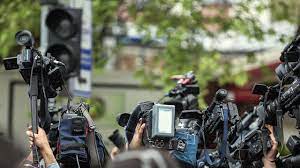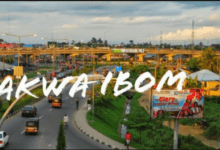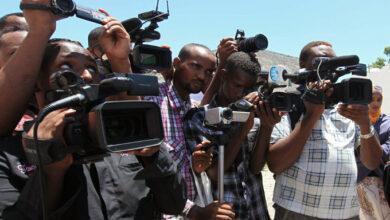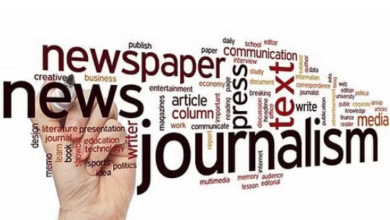
5 Problems Facing Mass Media In Nigeria
Mass media, including television, radio, newspapers, and the internet, plays an important role in shaping public opinion and providing information to the public. As such, the media has a responsibility to provide accurate, balanced, and unbiased information to the public. This includes reporting on events, issues, and policies in a fair and objective manner, without promoting a particular agenda or bias.NYSC Portal
The mass media industry in Nigeria faces a variety of challenges, including lack of government support, inadequate funding, and limited access to technology. Corruption and poor management are also common issues in the industry. We will dwell more on problems facing mass media in Nigeria in this article.
👉 Relocate to Canada Today!
Live, Study and Work in Canada. No Payment is Required! Hurry Now click here to Apply >> Immigrate to CanadaRead Also: The Role of Mass Media in National Development
What Is Mass Media?
Mass media refers to the various means by which information, entertainment, and advertising are disseminated to a large audience. These include television, radio, newspapers, magazines, books, films, the internet, and social media. The term “mass” refers to the fact that these forms of media reach a wide and diverse audience, often numbering in the millions or even billions. The mass media plays an important role in shaping public opinion, informing the public about current events, and promoting consumer culture. Mass media is considered as a powerful tool for educating, informing and entertaining the public, but it also has its own challenges, such as the spread of misinformation and the manipulation of public opinion.
Background Of Mass Media In Nigeria
The background of mass media in Nigeria dates back to the colonial era, when the British introduced newspapers and radio as a means of disseminating information to the population. The first newspaper in Nigeria, called “Iwe Irohin”, was published in 1859. The first radio station, called “West Africa Broadcasting Service” (WABS), was established in 1936.JAMB Portal
After Nigeria gained independence in 1960, the government nationalized the country’s major newspapers, radio and television stations. This led to a period of state control over the media, which lasted until the late 1980s. During this time, the media was used as a tool of propaganda and censorship was common.
In the 1990s, the Nigerian government began to relax its control over the media, leading to a proliferation of independent newspapers and radio stations. This period also saw the emergence of new forms of media, such as satellite television and the internet, which further diversified the Nigerian media landscape.
Read Also: 10 Influence Of Social Media On Adolescent Development In Nigeria
Roles Of Mass Media
- Informing The Public:
The mass media is a primary source of information for the public, providing news, analysis, and commentary on current events and important issues.InformationGuideNigeria
-
Shaping Public Opinion:
The mass media plays a significant role in shaping public opinion by presenting information and perspectives that influence how people view the world.10 Best University In Nigeria With Low School Fees
👉 Relocate to Canada Today!
Live, Study and Work in Canada. No Payment is Required! Hurry Now click here to Apply >> Immigrate to Canada-
Holding Those In Power Accountable:
The mass media acts as a watchdog, monitoring the actions of government officials and other powerful individuals and organizations, and reporting on any misconduct or abuse of power.
Read Also: 10 Influence Of Mass Media On Domestic Violence In Nigeria
-
Promoting Democracy:
Mass media plays a vital role in promoting democracy by providing citizens with the information they need to make informed decisions and participate in the democratic process.105 Good Morning Love Messages
-
Education:
Mass media is a powerful tool for educating the public on various issues, including health, social issues and civic responsibilities.200 Romantic Love Message
-
Entertainment:
Mass media also serves as a source of entertainment, providing movies, music, and other forms of entertainment to the public.
Forms Of Mass Media
There are several forms of mass media, including:
- Television: Television is one of the most widely consumed forms of mass media, and it serves a variety of purposes such as news, entertainment, and advertising.
- Radio: Radio is another widely consumed form of mass media, and it provides news, music, and talk shows to listeners.5 Best Mtn Wifi in Nigeria and their prices
- Print Media: Print media includes newspapers and magazines, and it provides news, analysis, and commentary on current events, as well as features on arts, culture, and lifestyle.
- Film: Film is a visual medium that can be used to tell stories, present information, and entertain audiences.
- Internet: The internet is a rapidly growing form of mass media that includes websites, social media platforms, and online news outlets. It provides access to a wide range of information and entertainment, and it allows for interactive communication between users.
- Outdoor Advertising: Outdoor advertising includes billboards, signs, and other forms of advertising that are displayed in public spaces. They are used to promote products and services to a wide audience.
Problems Facing Mass Media In Nigeria
- Mass media in Nigeria faces a number of challenges, including a lack of government support, inadequate funding, and a lack of journalistic integrity.
- One of the main issues facing the Nigerian media is a lack of government support. The government often sees the media as a threat and has been known to crack down on journalists who report on sensitive issues or criticize the government. This has led to a climate of fear and self-censorship among journalists, who are often afraid to report on important issues for fear of reprisal.
- Another major problem facing the Nigerian media is inadequate funding. Many media outlets struggle to stay afloat financially, and this can lead to a lack of resources and a lack of quality content. This is particularly true for smaller, independent outlets, which often lack the financial support of larger, more established media organizations.
- A third problem facing the Nigerian media is a lack of journalistic integrity. Many journalists in Nigeria are not properly trained or lack the ethics and values of traditional journalism. This can lead to sensationalism, bias, and inaccuracies in reporting. It also leads to mistrust between the media and the public.
- Finally, the Nigerian media also faces a number of technological challenges. The country has a high level of poverty and low levels of literacy, which means that many people do not have access to traditional forms of media such as newspapers and television. This has led to a reliance on social media, which can be a double-edged sword: while it allows for greater access to information, it also makes it easier for false information to spread.
Read Also: The Role Of Mass Media In Nigeria
Solutions To Problems Facing By Mass Media In Nigeria
- Government Support:
The Nigerian government should provide more support to the media by protecting press freedom, promoting transparency and accountability, and creating an enabling environment for the media to operate freely and independently.
- Financial Stability:
Media organizations should be provided with more funding and resources, to ensure their financial stability and enable them to produce quality content. This can be achieved through government subsidies, donor funding, and partnerships with private sector.
- Professionalism And Ethics:
Media organizations should invest in training and development for journalists, to improve the quality of their reporting and increase the public’s trust in the media. This includes training on journalistic ethics, fact-checking, and investigative journalism.
- Technological Advancements:
Media organizations should adapt to new technologies and use them to their advantage. This includes using social media and mobile technologies to reach wider audiences, and using data analytics to improve the effectiveness of their content.
- Public Engagement:
Media organizations should increase their engagement with the public by providing opportunities for feedback and dialogue. This can be achieved through the use of interactive platforms, public events, and other forms of engagement. This will help to increase the public’s trust in the media, and ensure that the media is more responsive to the needs and concerns of the public.
Read Also: 10 Influence of Social Media on Journalism Practice in Nigeria
Conclusion
The Nigerian mass media is facing a number of challenges, including a lack of government support, inadequate funding, and a lack of journalistic integrity. These challenges have led to a climate of fear and self-censorship among journalists, and have also led to a lack of quality content and mistrust between the media and the public. However, with proper support from the government, adequate funding, and a commitment to journalistic integrity, the Nigerian media can overcome these challenges and play an important role in promoting democracy and holding those in power accountable. Additionally, addressing the technological challenges such as low literacy rate and poverty will also help in ensuring the effectiveness of the mass media in Nigeria.
Check JAMB Result
Check and Confirm: How much is Dollar to Naira







